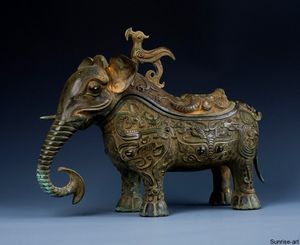The Bronze Age
Introduction
A Bronze Age is a description of a time period in a civilization's development when Bronze was the most advanced metal for tools. Typically, the first enduring tools early man used were made of stone. The Paleolithic and Neolithic eras refer to this level of Technology. As man learned to use metals, his tools got better and more efficient. The time between the use of stone tools and the more complex development of iron is generally a civilization's Bronze Age. (See The use of Metals in History.) Although the Bronze Age occurred at different times in various places, many societies began using Bronze around the third millennium B.C.E.

Bronze
Bronze is an alloy of copper and tin and is superior to both of them individually. It allowed for the casting of better swords, plows, and other tools. The development of Bronze had a significant effect on human societies.
The Effects of Bronze
The most important historical consequence of Bronze is that its use created large surpluses of agriculture that allowed many more people to live in an area. It led to the rise of complex societies, cities, urbanization, and increased the social and gender inequalities that first came with the discovery of agriculture (See Neolithic Revolution).
Bronze Art
Although bronze was first used for tools and weapons, it soon became popular for works of art and decorative objects. The Shang Dynasty of China was one of the first to use bronze like this and excelled in craftsmanship and bronze technology. (See River Valley Civilizations: China.)
